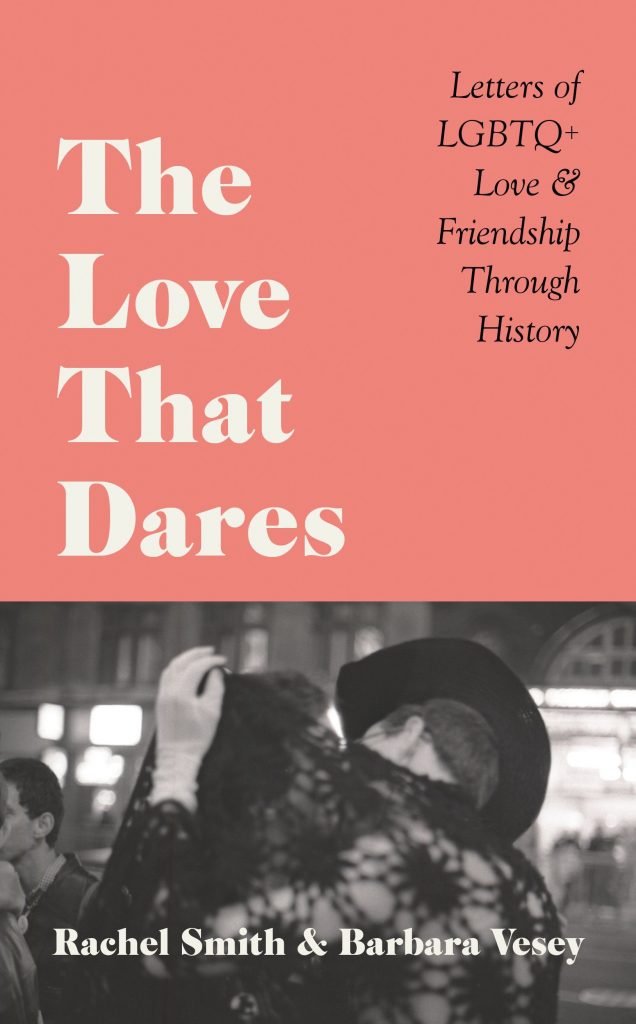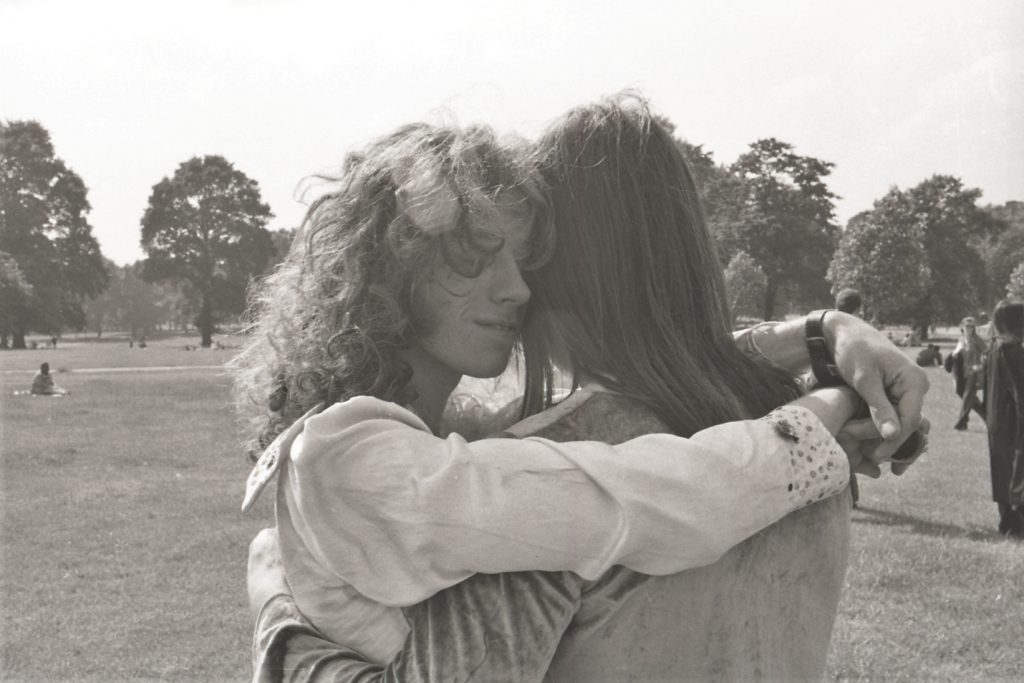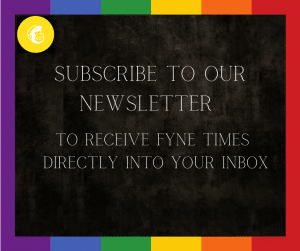A good love letter can speak across centuries and reassure us that the agony and the ecstasy one might feel in the 21st century have been shared by lovers long gone. This is all the truer of LGBTQ+ love letters: love affairs and relationships that, until very recently, had to survive within sealed envelopes and behind closed doors. In The Love That Dares, queer love speaks its name through the words of lovers from years gone by. Compiled by Bishopsgate archivists Rachel Smith and Barbara Vesey, these letters give us a glimpse into the passion and courage it took to continue a gay relationship in times when it was at best improper, and at worst illegal. Enlightening introductions to each set of letters give readers an idea of the historical context in which they were written. Back in December, Smith and Vesey told Sam Bennett more.

Firstly, how are things at Bishopsgate Institute?
BV: Fantastic! We’ve had many amazing collections deposited with us to look after this year, including those from the London Gay Men’s Chorus and Terrence Higgins Trust, and photographers Maggie Murray and Brenda Prince.
RS: Our service is now bookings-only and no drop-ins due to COVID, however that is the only change. We are booked and busy. Our team completed over 600 archival requests last month alone.
Congratulations on The Love That Dares. In its introduction, Rachel, you quote Oscar Wilde and ‘the glamour of life’, but the book also often contains letters about baking and paying bills. Was domesticity always destined to be one of the book’s themes?
RS: Thank you! We didn’t set out with any thematic goals as such, but life is in the details, is it not?
BV: I know that we didn’t want it to be about doomed or tragic love – one person we asked early on for ideas just seemed to keep coming up with examples of really abusive relationships, and we were both like, ‘no’. There are sadnesses expressed in the letters, of course – people who are separated from their loved one because of work, people who have gone through pain to be with the person they love – but we really wanted the book to be a celebration, and that includes celebrating ordinary, everyday life.
You’ve included correspondence by non-writers – in which ways are these letters just as beautiful as those by professional authors?
BV: It was important for us to not just have authors. Authors, I think, are always writing for an audience, with an eye towards posterity. Non-literary folk – we have letters by musicians, painters, political activists, educators and at least one labourer – seem to me to be less studied, more immediate, and perhaps in some ways more unaffectedly open and honest than ones crafted by a poet or novelist.
RS: One need not be a professionally trained writer to create literary beauty, nor does literary beauty need to be found in a published work. Literary beauty can be found in writing on kitchen roll.
One of my favourite lines is Walt Whitman’s to Harry Stafford, ‘Keep a brave heart’ – it seems to say so much more than a simple ‘be brave’ would. Do you have any favourite lines or passages?
BV: Ooh, hard to choose. I love Siegfried Sassoon’s boy-crush letter to Edward Carpenter, where he has clearly included a photograph of himself (‘taken at Oxford, by Nevill Fortas, who has spoken to me about you a great deal’). I also love the letters between Audre Lorde and Pat Parker, as they speak of feminism and against sexism and racism as much as about LGBTQ+ rights.
RS: I love Vita Sackville-West writing to Violet Trefusis saying that her friendship with her former lover is like an ‘unexploded bomb’ in her life, and I love John Thompson ending a letter to his partner John Dalby, ‘I’m still crazy about you even though your [sic] corny, greying wrinkling and fart like thunder.’
Do you expect the more recent letters to be the most relatable to modern-day readers?
BV: Not necessarily. I think – to quote the great Neil Tennant – that people will ‘find inspiration in anyone who’s ever gone and opened up a closing door’. Different letters will speak to different people, depending on where they are in life and what they’re going through in that moment. And hopefully, over time – if they come back and back to the book – other letters will feel more relevant and will shore them up, make them smile, or generally help them through.
RS: As a species, we humans may have made great advances technologically, but not that many socially, I would argue. As LGBTQ+ people, we are still fighting for our liberation, our love for each other, and indeed our love for ourselves without political or social retribution.
How complex and arduous is the actual procedure of accessing, handling, and using all these letters from history? I imagine you’ve both worn a lot of gloves in the process.
RS: Common misconception!
BV: I’m afraid no one wears gloves anymore, darling – they leave fibres which are not good. Clean hands are all that’s required. Because of COVID we weren’t able to go into a lot of archives. Many of the letters we found in other published collections of individuals’ letters; some we found online; some are in the Bishopsgate Institute archives, of course; and for others the archivists at other repositories very helpfully scanned them for us (shout out here to Sheffield Archives for the letters of Edward Carpenter).

Is there anything more you’d like to do with The Love That Dares? Could you do a study pack or similar for schools?
RS: A school pack is a very interesting idea. The plan we have at the minute is the creation of an archival collection called ‘Love That Dares’ where any LGBTQ+ person can donate their love letters to Bishopsgate Institute Special Collections and Archives.
BV: We have also talked about a website, Twitter, a podcast – there are lots of possibilities that the letters lend themselves to. Further editions of the book – with contributions from readers of this one – would be great.
Of all the figures in your book, whose stories still need to be told to the world?
BV: All of them.
RS: Every story matters.
BV: We really want this book to be a springboard for people to go off and learn more about the people in it and about other LGBTQ+ histories, and to explore other people that we couldn’t include.
To whom have you dedicated The Love That Dares and why?
BV: To my children and their dad, because they have been so supportive and amazing. This past year and a half, I haven’t seen them as often as I’d like and it’s made me realise how critical they are to my sense of self and wellbeing.
RS: I have dedicated the book to my wife, Katrina.
What are you reading, watching, and listening to at the moment?
BV: I’m rereading Let the Great World Spin: a wonderful novel set mainly in New York (where I’m from) in the 1970s, written by Colum McCann. I also just started the BBC’s You Don’t Know Me. I’m listening to podcasts, mostly, including ‘Pod Save America’ and ‘No Such Thing as a Fish’.
RS: Reading Inventing Ourselves: Lesbian Life Stories from the Hall Carpenter Archives Lesbian Oral History Group, watched the film Ammonite about Mary Anning, and listening to Adele’s new album (very on brand, ha!)
What other depictions of LGBTQ+ history are gripping you right now?
RS: Aside from Ammonite which I absolutely loved and Inventing Ourselves which I’m thoroughly enjoying, My Name is Pauli Murray is next on my watchlist and I am excited for a movie about the life of Bayard Rustin which is due to come out next year.
BV: ‘The Log Books’ podcast by Switchboard – Bishopsgate look after their archive and the research has all been done here, as we have all the original call logs. They’re up to series 3 and I can’t recommend it highly enough – moving, funny, informative, important.
The Love That Dares: Letters of LGBTQ+ Love & Friendship Through History is published by Ilex Press, 16.99, octopusbooks.co.uk

